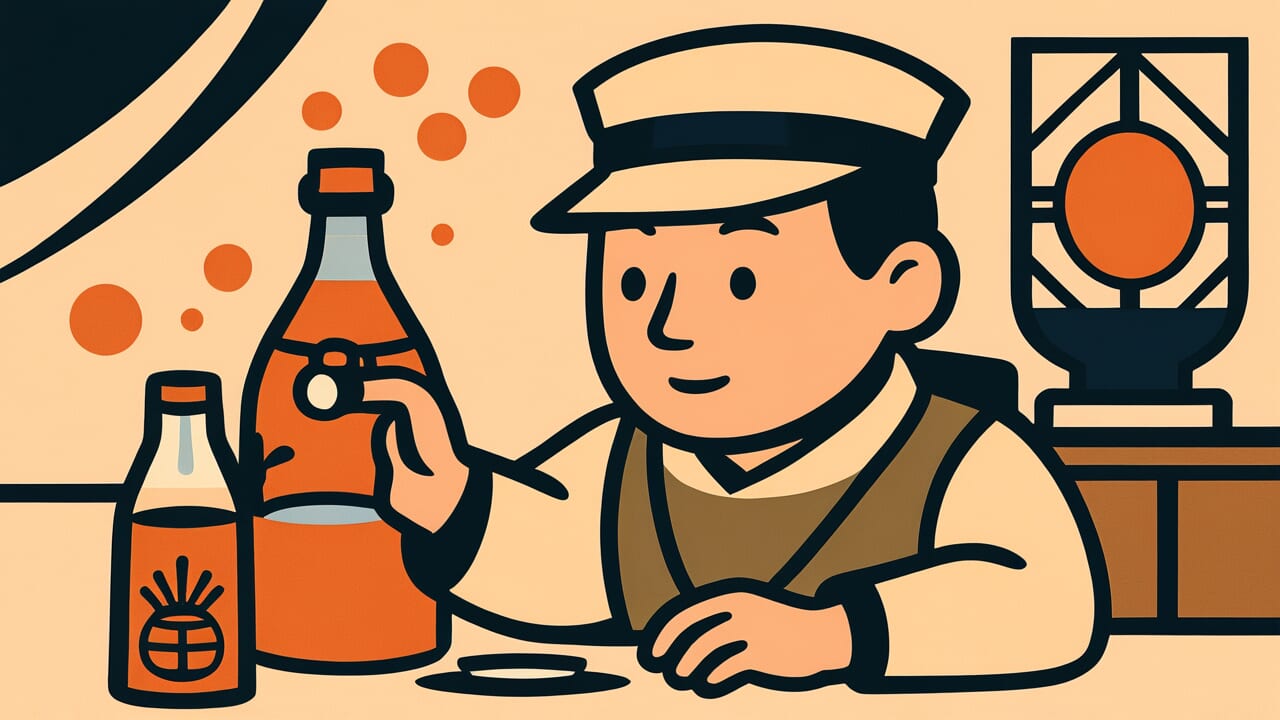How to Read “Sake is like a fierce soldier”
さけはなおへいのごとし
Meaning of “Sake is like a fierce soldier”
This proverb means that sake is dangerous like a weapon. If you handle it carelessly, it will cause harm.
A weapon can protect you when used correctly. But if you misuse it, you’ll hurt yourself or others. Sake works the same way.
When you drink moderately, alcohol can relax your mind. But when you drink too much, it damages your health. It clouds your judgment and destroys relationships.
People use this proverb to emphasize alcohol’s dual nature, especially its dangerous side. It’s used when warning someone who failed because of drinking.
Teachers also use it when educating young people about alcohol. Even today, alcohol causes many problems. These include addiction, drunk driving, and conflicts at drinking parties.
This proverb doesn’t deny the freedom to enjoy alcohol. Instead, it teaches that you must understand alcohol’s power and handle it carefully.
Origin and Etymology
No clear written records explain this proverb’s origin. However, the word structure offers interesting insights.
The term “yūhei” likely comes from ancient Chinese classics. “Yū” means “still” or “like.” “Hei” means weapons or arms.
Together, the phrase means “sake is just like a weapon.”
Throughout history, weapons could protect people. But when misused, they became dangerous tools that harmed the user or others.
Similarly, sake can soothe the mind when enjoyed moderately. It can smooth human relationships. But excessive drinking harms health and destroys judgment. Sometimes it even ruins lives.
This proverb likely emerged from ancestors who witnessed many failures and tragedies caused by alcohol. They used the powerful metaphor of weapons to warn strongly about alcohol’s dual nature.
They especially wanted to highlight its dangers. By using formal Chinese-style language, they created a dignified and memorable lesson. This helped the teaching stick in people’s hearts.
Usage Examples
- He forgot that sake is like a fierce soldier and drank heavily every night. As a result, he ruined his health.
- We should teach young employees that sake is like a fierce soldier. Otherwise, some will fail at drinking parties.
Universal Wisdom
“Sake is like a fierce soldier” reveals a deep truth. Most things humans create are essentially double-edged swords.
Not just alcohol, but money, power, knowledge, and technology all work this way. Depending on how you use them, they can make people happy or miserable.
But why do people repeat the same mistakes? They know the dangers, yet they keep falling into the same traps.
The answer lies in human instinct. We naturally seek pleasure. When something feels good right now, we become blind to future risks.
Drinking feels pleasant in the moment. It helps you forget stress. This comfort creates temptation. “Just one more drink.” “Just for today.”
This proverb has survived for generations because our ancestors deeply understood this human weakness. They used the powerful metaphor of weapons to drive home a warning.
“If you let your guard down, you’ll hurt yourself.”
True wisdom means recognizing the danger in powerful things. It means having the strength to control yourself.
This proverb teaches across time that balance between freedom and moderation is the key to living a rich life.
When AI Hears This
Looking at alcohol’s effects on the brain reveals a surprisingly precise dual nature. At low doses, it strengthens the inhibitory neurotransmitter GABA.
This relaxes the brain. It also slightly suppresses excitatory glutamate, which reduces anxiety. But once blood concentration exceeds 0.05%, this relationship starts reversing.
What’s fascinating is that alcohol keeps acting on the same receptors. Yet increasing the amount produces opposite results.
For example, small amounts dilate blood vessels and improve circulation. But large amounts constrict vessels and strain the heart.
This is the hormesis effect in pharmacology. Low and high doses trigger opposite biological responses.
From a neuroscience perspective, the threshold where the brain judges “this is poison” exists in an extremely narrow range. For a person weighing 60 kilograms, the difference between appropriate and excessive amounts is only about one cup of sake.
Ancient people described this delicate balance as “like a weapon.” They were actually hitting on scientific fact. The sharpness of this switch from ally to enemy is the true nature of alcohol as a substance.
Lessons for Today
This proverb teaches modern people an important lesson. The more something offers convenience or pleasure, the more carefully you must approach it.
Modern society overflows with things besides alcohol that dull our judgment or create dependency. Smartphones, games, social media, gambling, and various indulgences.
All of these are “like fierce soldiers.”
The important thing isn’t avoiding them completely. Just as weapons become protective tools when handled correctly, these things can enrich your life when used properly.
The problem is not noticing when you’ve lost control. You think you’re in charge, but actually you’re being controlled.
You have the power to look at your actions objectively. Ask yourself this question. “Am I choosing this by my own will, or am I being dragged by habit or addiction?”
That question becomes your strongest weapon for self-protection. People who deal wisely with powerful things never surrender control of their lives.
This proverb gently yet powerfully teaches you something vital. Always keep hold of the steering wheel of your own life.



Comments